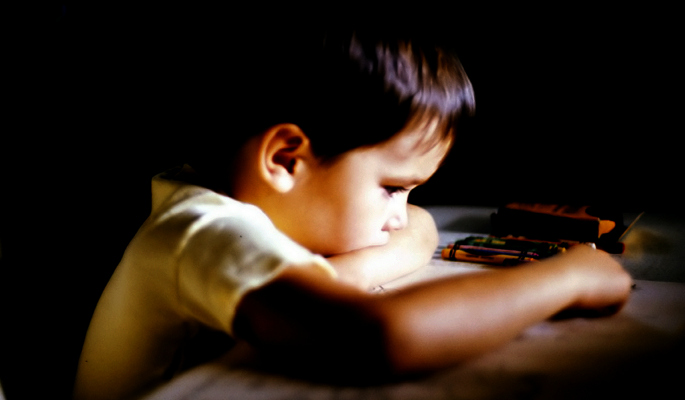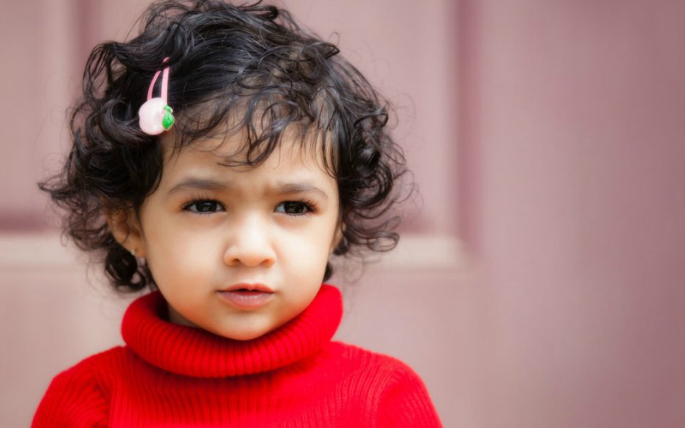"Ever since I was little, they used to fight and argue all the time. I’m used to it now"
Divorce in Asian families is no longer a taboo. Even the older, far more traditional generations have come to accept that the newer generations will not choose to stick together in a doomed marriage for the sake of family honour, or “izzat.”
In fact, The Office for National Statistics (ONS) found that the number of divorces in 2013 was highest among men and women aged 40 to 44. A large percentage of these may well be accounted for by British Asian couples, many of them parents.
However, one recurring problem which seems to follow us around regardless of how much times have changed, is that Asian parents seem less likely to consider how their children are affected by such choices.
It is far less apparent whether the newer generation makes these life-changing decisions while taking into account the considerable emotional and psychological impact that divorce will have on their children.
Have Desi parents ever stopped to consider for a moment how their divorce will impact their children? Specifically, how it will create lasting psychological effects and emotional damage later on in their children’s lives?
DESIblitz has compiled a list of some damaging behaviours that Desi “divorce parents” often engage in:

1. Fighting in front of the child
12-year-old Priya, whose parents are in the middle of a divorce, tells us that her parents are constantly fighting – and that she is used to it.
“They shout a lot. Ever since I was little, they used to fight and argue all the time. I’m used to it now.”
When asked about how she deals with the arguing, Priya, who is in her second year of secondary school, says that she uses school and friends as an escape:
“I just ignore them, go to school, chill with my friends. And I go to after school netball practices. That’s fun. It gets me away from mum and dad.”
Withdrawal and avoidance is one psychological impact of divorce on older children and teenagers. They may withdraw into themselves or show rebellious behaviour.
This may be an especially difficult time for British Asian children if they lack support from extended family. These children then have no one to turn to, and feel isolated and lonely, which leads to our second problem:
2. Pressuring the child to pick a side
Many times children are used by Desi parents as pawns in “divorce games” – psychological and emotional warfare between the divorcing couple in order to gain the “upper hand.”
In all families, there is the tendency of divorcing couples to emotionally blackmail their children into picking a side, either with mum or dad.
In Desi families in particular, there is often the added pressure of pleasing the extended family on both sides.
Emotions run high and children feel trapped between the warring factions.
14 -year-old Aneeka tells us that her paternal grandmother has been a huge part of her childhood, often babysitting and taking her on trips. But after her parent’s divorce, she feels as if she is betraying her mother by visiting her grandmother’s house:
“When I go to Daadi’s she says stuff about mum and how she’s not a good mother. It makes me feel guilty. When I come home, mum always looks hurt and betrayed,” she says.
Children in these situations tend to withdraw or retaliate through aggressive behaviour, as they frequently feel trapped and helpless.

3. Using the child as a messenger and spy
The hostility with which divorcing couples communicate with each other very often leads to the unfair allocation of the child as the messenger.
When one parent becomes angry as a result of a negative message from the other, the child may start to blame themselves for their reaction.
A younger child might internalise the reaction as a sign that their parent is angry with them and does not love them anymore, resulting in clinginess and overly dependent behaviour.
This role of messenger can also lead to the child being used as a spy for one or both parents.
Within many Asian families who have gone or are going through a divorce, it is not uncommon for a parent to ask for information from their child about what their father or mother is up to.
A child may start to realise that they are being rewarded, directly or indirectly, for the information they provide to the parent. Thus, the spying becomes an unhealthy habit which the child uses to gain favour with one parent.
These behaviours are made much worse in many British Asian families in which there are extended family members involved – encouraging the child in this detrimental behaviour.
4. Not granting visitation to a parent
Some parents go as far as to decide that their ex-spouse is not worthy of visitation rights.
In many Asian families, children are manipulated psychologically to believe that their other parent is “bad” for having “left” or “deserted” them.
Extended family members who are in regular contact with the child can also influence their way of thinking – making it easier for the live – in parent to revoke visitation rights from the other, claiming that the child does not want to see them.
The child in this situation feels as if they do not have a voice – deep down, they want to see their parent. However, they do not want to seem disloyal to their live-in parent and extended family.
It is frequently fathers in this situation that are worse off, as many British Asian children go on to live with their mother prior to divorce.

Effect on Future Relationships
Exposure to the unhealthy ways in which many British Asian parents act out their divorce related issues will result in their child internalising their parent’s relationship as a model for all relationships, including their own.
The effects of this may not become apparent for many years, but when the child grows up and begins to seek relationships of their own, they will have difficulty maintaining healthy intimate connections due to the psychological impacts which have accumulated as a result of their parents’ divorce conflicts:
- Lack of trust in relationships
- Anxiety in relationships
- Hesitancy towards marriage
- Positive attitudes towards divorce
- Increased desire to leave rather than work it out
- Increase in the number of divorces
- Increase in violent and aggressive behaviour in a relationship (males)
- Increase in meek/subservient behaviour in a relationship (females)
All of the above are also factors contributing to the rapid increase of divorce amongst British-Asians.
One generation passes on its marital instability on to the next, with children of divorced families bouncing from one unfulfilling and unhealthy relationship to another and never finding stability.
Contrastingly, some “children of divorce” avoid committed relationships altogether to protect themselves from the pain of investing themselves emotionally in a relationship which they believe will ultimately fail.

What should parents do?
Divorce is a reality for many families, and in some cases, it is necessary and even beneficial.
However, even the best decisions may come with many destructive effects for the children involved.
To keep these negative effects to a minimum, parents should:
- Stay out of conflict with the other parent
- Avoid making negative remarks about the other parent when the child is present
- Help to make the child understand that the relationship between the parents is over, however, the relationship between the child and its parents will stay the same.
- Act responsibly and with maturity, e.g. avoid name-calling and insults
- Not ask the child to relay messages to the other parent
- Not ask the child what is going on in the other parent’s life
- Let each household have its own rules
- Not lean on the child for emotional support
- Not ask a child to keep a secret from the other parent
- Not discuss the financial and emotional details of the divorce with the child
- Try to create as much stability and continuity as possible between households
- Give your child time and attention
- If you cannot see your child regularly, be creative and stay in active contact
- Not use the other parent as an asset, e.g. for babysitting
- Try family counselling to address issues of grief, anger, sadness, etc.
- Create time-sharing plans that children, especially young ones can see and have access to
- Let go of the relationship and focus on your own future
- Introduce children to new partners very slowly
Above all, parents should promote a loving and positive example for their children to follow.
If children witness their parents behaving respectfully and civilly with one another, and going on to have wholesome and fulfilling relationships despite having divorced, their model for future relationships will also be a healthy and positive one.
It is ultimately the responsibility of the parents in the British Asian community to self-reflect, break negative habits and mind-sets and place the emotional and psychological well being of their children above their own selfish notions.
Only then, will we see a decline in a hopeless community with disintegrating family units, values and relationships, and the rise of a future British Asian society with a renewed faith in love, relationships and family.






























































